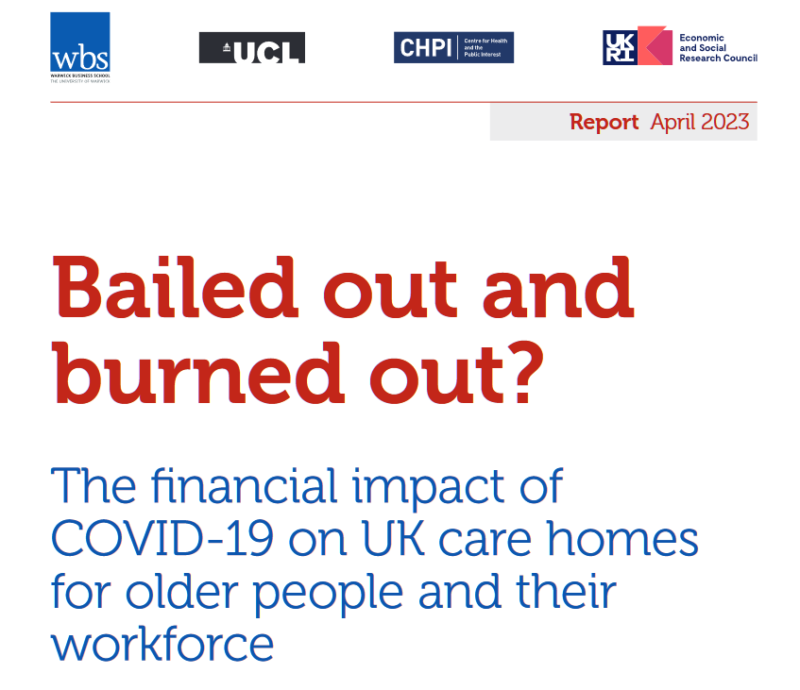
Bailed out and burned out? The financial impact of COVID-19 on UK care homes for older people and their workforce
This research is the product of a collaboration between Warwick Business School, University College London and the CHPI, funded by the Economic and Social Research Council.
The two year study examined the financial impacts of the pandemic on UK care homes for older people and their staff. It is based on an analysis of hundreds of company accounts, interviews with care home staff and a survey of over 600 care home workers.
Key findings
- Without £2 billion of government support, and care workers working longer and harder, the sector would almost certainly have collapsed financially during the first year of the pandemic. That emergency funding helped to stabilise care homes early in the pandemic. Some even increased payments to investors: a quarter of companies increased dividends, by 11%.
- Since the peak of the pandemic, the care home sector has faced a financial crisis due to the removal of government financial support despite continuing COVID outbreaks, workforce shortages and inflation.
- Government support focused on keeping care homes financially viable, with only a small proportion devoted directly to supporting staff who were working in extreme circumstances. As many as 4 in 10 care home staff reported financial problems related to working in care during the pandemic.
- The financial impacts on staff varied by ownership type and size. Staff experiences were more positive in not-for-profits and smaller organisations on a range of measures.
- Staff valued in-person support from colleagues, managers, and external professionals
Recommendations
- Improved contingency planning for the financial impacts of future pandemics and their consequences for staffing, including creating a standby emergency social care workforce.
- Sustained government support for care homes coping with the lasting impacts of pandemics.
- Public funding for care, including emergency support during pandemics, should take account of evidence showing varying outcomes by ownership type and should seek to promote forms of provision that offer both good care and good jobs.
- Government and employers should improve pay and conditions for care staff, in general and especially during pandemics (including recognition payments, enhanced sick pay and overtime rates).
- Government should work with employers topromote a better understanding of how care staff experience their working lives, for example through an annual national workforce survey and to ensure adequate personal, professional, and clinical support is accessible to social care staff, particularly during a pandemic.
Bailed out and burned out? The financial impact of COVID-19 on UK care homes for older people and their workforce
Support Our Work
CHPI is the only truly independent health think-tank dedicated to the founding principles of the NHS. To continue our work keeping the public interest at the centre of health and social care policy, we need your help.
Please support CHPI so we can continue to impact the health policy debate.
